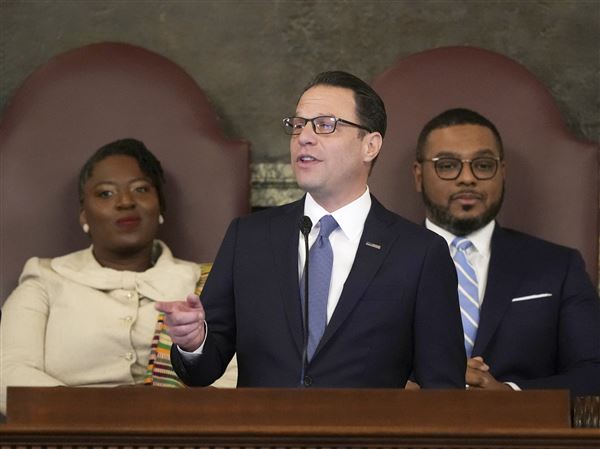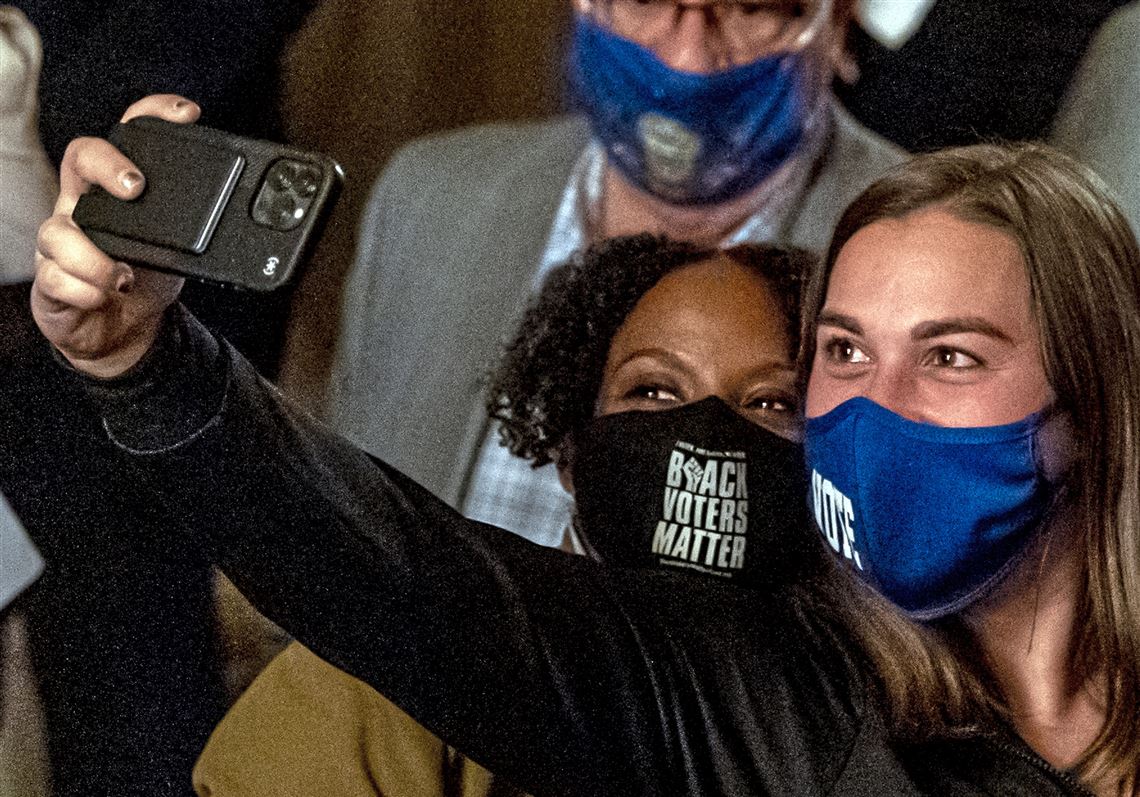As student loan payments become due again after a near two-year pause, Democrats worry that it’ll be seen as an indictment of the president and a direct hit to the pocketbooks of an entire generation of voters ahead of crucial midterm elections.
Many young people voted for Joe Biden and the Democratic ticket in 2020 because he supported canceling at least $10,000 in student loan debt for all borrowers. Now, party insiders are wondering whether the administration’s failure so far to act — and its insistence to restart payments — could cause harm at the ballot box in 2022.
But the decibel level at which Democrats are sounding the alarm depends on their leaning: The more institutional insist it’s not a motivating factor for single-issue voters and that Mr. Biden never really promised to cancel debt, while progressives say it’s promises made, promises ditched for an administration that can’t afford to lose a key voting bloc.
“We literally went out and knocked on doors on a false bill of goods that we were sold,” said Bethany Hallam, an at-large Allegheny County councilwoman. “[It stinks] for all the Democrats sitting in office right now, thinking of running for office in 2022, that they have this lie from the top of the ticket that was passed down to all of our voters, especially young voters and Black voters who are most impacted by student loan payments resuming.”
Payments will resume Feb. 1 as the government releases the pause that’s been in place — and extended at times — since the beginning of the pandemic in early 2020. Some Democrats fear that as soon as the payments start coming out of accounts, voters will also be reminded that their debt obligations have stayed the same and that it’s their party’s fault.
Terri Mitko, chair of the Beaver County Democratic Committee, said she’d be delighted if the Biden administration opted to continue the pause for a bit longer but said the real issues are the underlying systemic ones that Democrats are already working to address, from lack of paid sick and family leave, to raising the minimum wage and making higher education more affordable in the first place.
Ms. Mitko said she hadn’t heard from any Democrats in her county who are upset about the lack of student debt cancellation, and she insisted there weren’t many who deemed it their sole motivator to vote in 2020.
“I don’t recall anybody saying to me, ‘I’m voting for Biden because of the student debt issue,’ ” Ms. Mitko said.
To local Democratic organizer Darwin Leuba, it is more than feasible to think that voters will wonder why their student loan payments stopped under former President Donald Trump and resumed under Mr. Biden — even if it’s only optics.
In a letter to Mr. Biden this month, Democratic U.S. Sens. Chuck Schumer of New York and Elizabeth Warren of Massachusetts and Democratic Rep. Ayanna Pressley of Massachusetts said the government should extend the pause on student loan payments and interest “until the economy reaches pre-pandemic employment levels.”
They also urged Mr. Biden to cancel up to $50,000 of individual student debt to “relieve an enormous burden from borrowers while pumping billions of dollars per year back into our national economy.”
The Biden administration has insisted on restarting the payments Feb. 1 but indicated it was still assessing the impact of the omicron variant of COVID-19. Asked in a press briefing last week why Mr. Biden hadn’t followed through on his campaign pledge to cancel $10,000 in debt, press secretary Jen Psaki responded, “If Congress sends him a bill, he's happy to sign it. They haven't sent him a bill on that yet.”
Mr. Leuba, who has worked on many progressive campaigns in recent years, said some may try to combat the talk of broken promises by saying young people don’t vote anyway. But he added that it’s not just young people who are impacted by student loan debt — and young people do vote and should be considered swing voters. Republicans could use the broken promise to depress turnout among young Democrats, and progressives could use it in primaries against other Democrats, he added.
Tara Yokopenic, chairwoman of the Westmoreland County Democrats, said that if Mr. Biden could relieve some debt, he should. She said that although her county is slightly older, she often hears from people who say they’ve only repaid the interest on loans and nothing on the principal.
But asked if it would have a political impact in her county if Mr. Biden doesn’t cancel some debt, Ms. Yokopenic said it probably wouldn’t with “solid-D Democrats.” It could with younger voters, she conceded.
“My question back to them would be: do they think the Republicans are going to do it?” Ms. Yokopenic said.
It might not influence Democrats to vote Republican, Ms. Hallam said, but it could depress turnout among those who expected the president to take action to better their lives.
The pause is ending, too, while the pandemic is ongoing, Ms. Hallam noted — a pause that helped her, personally, while she wasn’t working, bills were piling up and her student loan payments were looming. People are still out of work, the councilwoman added.
Ms. Hallam echoed Democrats in Congress who have claimed that Mr. Biden has the immediate authority to cancel debt by executive order. The White House responded by ordering the departments of Justice and Education to explore his legal options, the results of which haven’t been revealed six months later, according to reporting by NPR.
Relieving debt would be a tough sell for some who are hesitant to give things away for free, said Ms. Mitko, but she thinks they could be convinced. If it doesn’t happen, perhaps it could motivate young people instead of dissuading them from voting, she added.
“I would hope that it would activate them to get involved,” Ms. Mitko said.
Ms. Hallam said they have been activated on this subject, and that Democrats down ballot were knocking on doors even before the pandemic, talking about student debt. This could be seen as a broken promise, she said — one that wouldn’t just hurt Mr. Biden, but “every single one of us” who expect people to show up for Democrats.
Proponents of Mr. Biden’s stance on student loans give him credit for overhauling existing loan forgiveness programs. In October, the Department of Education made significant changes to the Public Service Loan Forgiveness Program — which alleviates the student loan debt of public service workers after 10 years of payments — to loosen eligibility requirements.
And in local and state government, Democrats are filling the void by acting on their own to make changes.
In Pennsylvania last week, Gov. Tom Wolf and a coalition of state senators announced a policy change that makes student loan forgiveness from these public service programs no longer subjected to state income tax. The change was influenced by a group of Democratic state senators — including Allegheny County’s Lindsey Williams — who wrote Mr. Wolf a letter.
Ms. Williams said it was a constituent who originally told her that Pennsylvania was one of a few states that taxed debt forgiveness as income. The policy tweak is a “game changer” for those who have worked in public service, she said. Now, they won’t get a hefty tax bill.
Ms. Williams noted that Pennsylvania has one of the highest debt loads in the country, and said that she and her staff of 10 in total have nearly $1 million in student debt.
She said she frequently hears about student loan debt from constituents, whether it’s from those who are dissuaded from making a career change because of it, or those who spend less in the local economy and delay big purchases. She’s co-sponsoring an act to to allow borrowers to refinance their debt and make it so loan servicers are not collecting more interest than it costs to service the debt.
The senator said she thinks the Biden administration should discuss an extension to the pause on repayment, which was a “form of stimulus for an entire generation of students” during the pandemic.
Mr. Biden should also look at canceling some debt in some form of all borrowers, Ms. Williams said — noting that he made a campaign promise of at least $10,000, which would make a “huge difference for a lot of people.” Asked how the issue could impact her party politically, she said it’s an issue everyone in elected office should care about.
“It is a big deal and people are paying attention to it,” Ms. Williams said.
Julian Routh: jrouth@post-gazette.com, 412-263-1952, Twitter @julianrouth
First Published: December 19, 2021, 11:00 a.m.

















